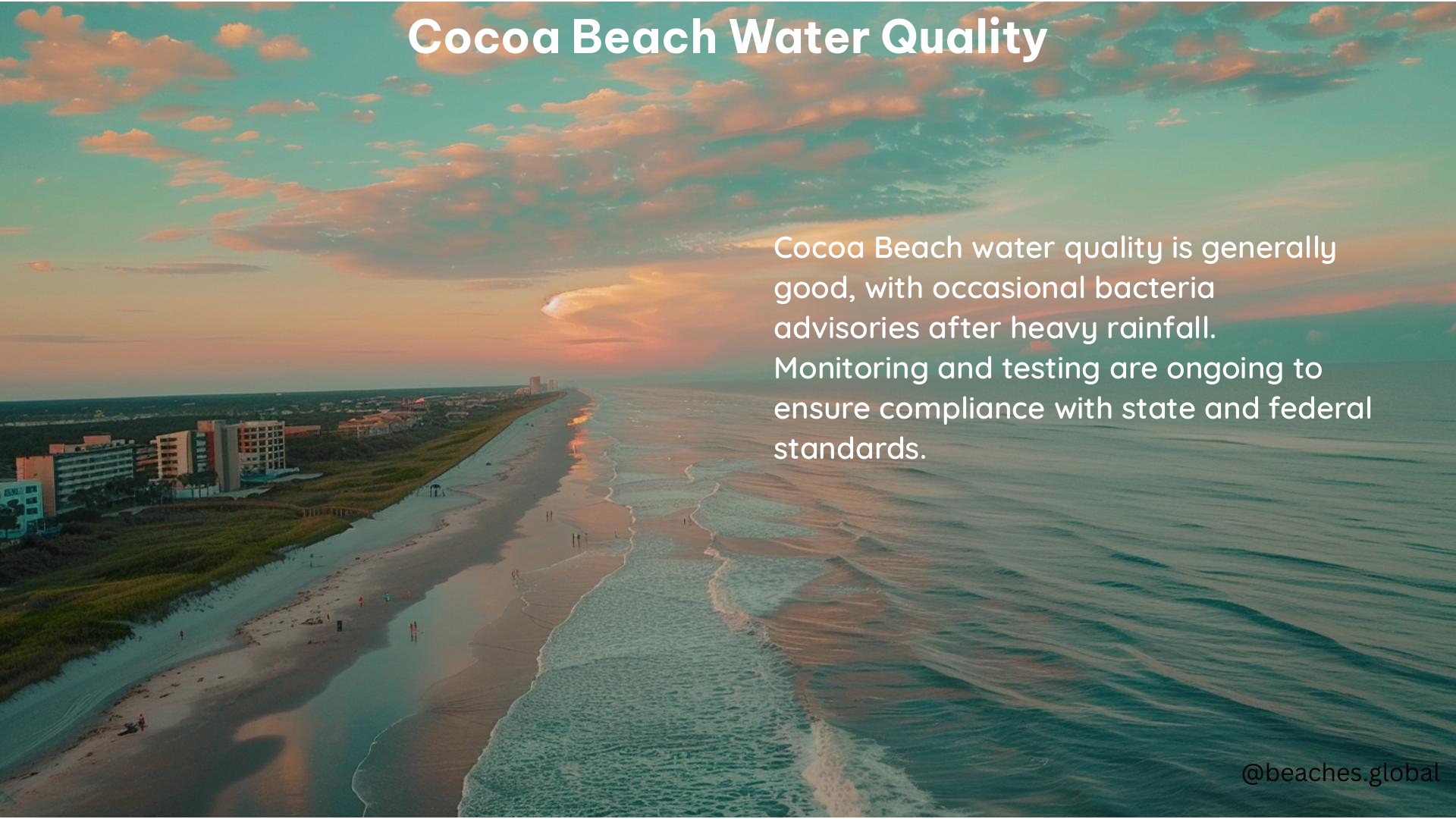Cocoa Beach, a renowned coastal destination in Florida, is a hub for beach enthusiasts seeking sun, sand, and surf. As a responsible traveler, understanding the water quality at Cocoa Beach is crucial to ensure a safe and enjoyable experience. In this comprehensive guide, we’ll delve into the details of Cocoa Beach’s water quality, providing you with the information you need to make informed decisions during your beach adventures.
Cocoa Beach Water Quality: An Overview
Cocoa Beach, known for its pristine beaches and vibrant coastal atmosphere, has a water quality that is closely monitored by the Florida Department of Health (DOH) and the Florida Healthy Beaches Program. According to the latest data, the Cocoa Beach Pier has passed water quality tests between 60-95% of the time, indicating that the water quality is generally good, but can fluctuate depending on various environmental factors.
Monitoring and Testing Procedures

The Florida Healthy Beaches Program is responsible for monitoring the water quality at Cocoa Beach. Samples are collected bi-weekly on Mondays, and the results are posted on the program’s website on Wednesdays. The program uses the Beach Action Value (BAV) of 70 CFU per 100 mL as a guideline for issuing public health advisories. If the sample result exceeds this value, the beach is resampled the following day, and a beach advisory may be issued if the initial test result is still above the threshold.
Recent Water Quality Advisories
In April 2023, a precautionary swimming advisory was issued for the Cocoa Beach Pier due to elevated levels of fecal indicator bacteria. This advisory was a preventative measure to protect the public’s health, and swimming was not recommended during this time. It’s important to stay informed about any current advisories or closures by checking the Florida Healthy Beaches Program’s website or consulting with local authorities before entering the water.
Factors Affecting Cocoa Beach Water Quality
The water quality at Cocoa Beach can be influenced by various environmental factors, such as:
- Weather Conditions: Heavy rainfall, storm events, and high tides can impact water quality by flushing contaminants and bacteria into the coastal waters.
- Nearby Waterways: The proximity of the Banana River and other nearby waterways can contribute to the introduction of pollutants and bacteria into the beach environment.
- Beachgoer Activities: Improper disposal of waste, pet waste, and other human activities can also affect the water quality at Cocoa Beach.
Beach Safety Recommendations
To ensure a safe and enjoyable experience at Cocoa Beach, it’s essential to follow these beach safety tips:
- Check with Lifeguards: Before entering the water, consult with the lifeguards or local authorities about any specific rip current warnings or water quality advisories.
- Swim at Guarded Beaches: Choose to swim at beaches with lifeguards present and follow their instructions.
- Buddy System: Never swim alone; always have a companion with you.
- Supervise Children: Keep a close eye on children and ensure they are supervised at all times.
- Avoid Alcohol and Drugs: Refrain from swimming under the influence of alcohol or drugs.
- Sun Protection: Protect yourself from the sun by wearing sunscreen, seeking shade, and staying hydrated.
Conclusion
Cocoa Beach is a beloved destination for beach enthusiasts, and understanding the water quality is crucial for a safe and enjoyable experience. By staying informed about the latest water quality updates, following beach safety guidelines, and being mindful of environmental factors, you can make the most of your Cocoa Beach adventure. Remember to check the Florida Healthy Beaches Program’s website or consult with local authorities before hitting the waves, and enjoy the stunning coastal beauty that Cocoa Beach has to offer.
